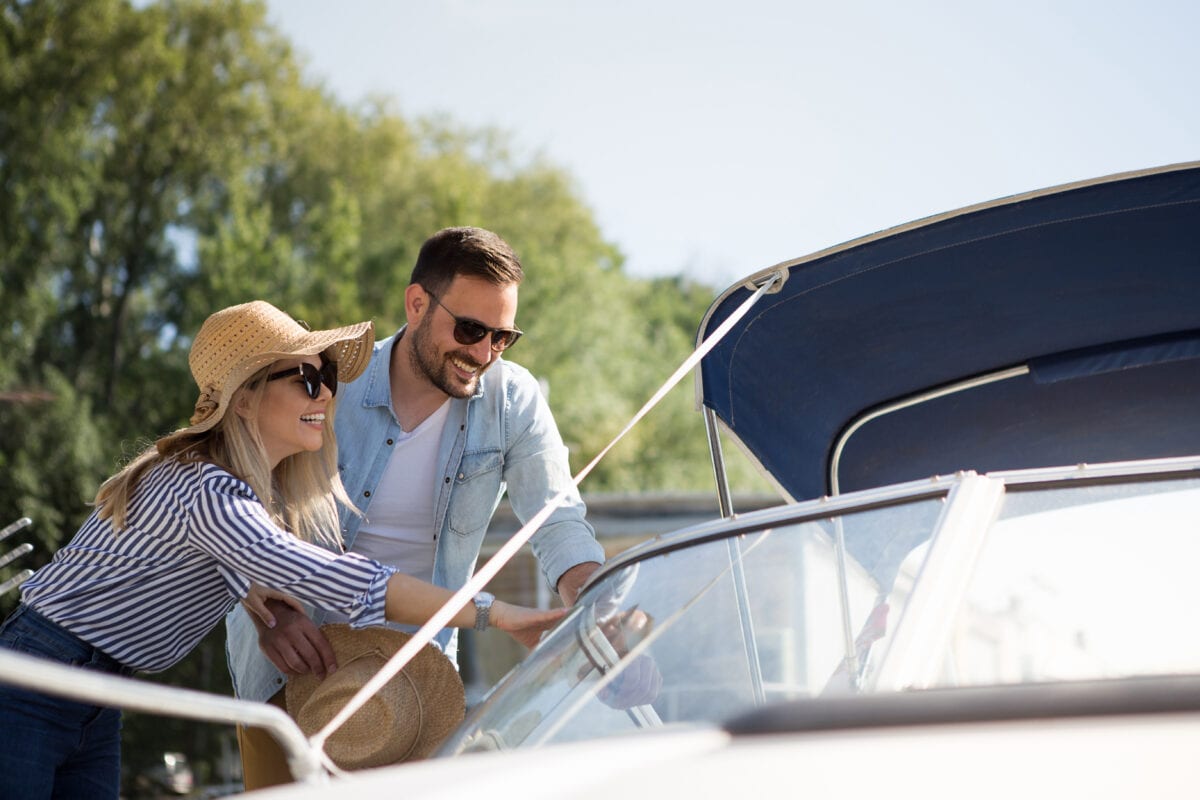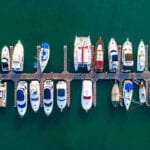

How to Buy a Boat
First things first, before you buy a boat make sure you have a solid PLAN and have a good understanding of what it means to be a boat owner.
One of the first steps in the boat buying process is the most important. You need to decide exactly what type of water craft will best fit your needs and wants of you and who ever is part of this purchase. The decision of which type of boat you decide to get into may define a good experience and a not so happy one.
Take a moment to think about, why are you really buying a boat? Then, narrow it down to what am I going to be doing on this boat more than anything else. It can be weekend getaways, fishing, ski/wakeboarding, traveling, entertaining guests, or throwing a massive party with friends as much as possible.
These decisions should not only define why type of boat you are looking for, but also let you better understand what features your boat needs.
Steps to Buying a Boat
- Choose the right boat type that fit your needs
- Decide if you are buying a new or used boat
- Verify the boat is a certified boat
- Figure out your budget and how much of a boat you can afford using our boat loan calculator.
- Learn how boat financing works and how to get a boat loan
- Start searching for a boat, 1Yacht has a vast number of listings, start here.
- Get a grasp on your boat value and prices as well as how to negotiate
- Conduct a Sea Trial and a Marine Survey
- Close the deal – don’t forget Boat Registration, Insurance, and Taxes
Selecting What Type of Boat To Buy
Start by making a list of what activities you plan to do on the boat. This will determine what type of boat you need to look for. Consider how many people you want the boat to hold, if you need to have a head (bathroom) on board, if you will be spending more than one day on the boat, do you plan to do fishing trips, is the boat going to go out in the ocean, just to name a few.
Now that you know what type of boat you are looking for, you need to see what type of boat is in your budget.
Set Your Budget
Owning a boat is more affordable than you may think. With a better understanding of the type of boat you want, its time to dive further in to help set your budget.
The biggest fork in the road is choosing New or Used.
With a new boat you get that new boat feel, less engine maintenance, most things will be covered by the warranty, and with the latest upgrades.
On the other hand, a used boat may need to be checked out more often, maintained, and may need some touching up. BUT, buying a used boat will allow you to stretch your budget for a larger vessel.
If you are considering financing your purchase, start by using our Boat Loan Calculator to see how much of a boat fits your budget. Don’t forget to keep in mind the Costs of Boat Ownership when setting your budget.
Start Shopping Around
Having a boat and budget in mind, it’s time to start searching for what’s on the market. A good place to start is the 1Yacht boat for sale.
You can also opt for a Dealership Experience, this is great for those that need to physically see and experience the boat. A broker at the dealership will also be very helpful in better selecting the right boat. It is good practice to know what a dealership has available before you go as well as schedule a viewing with a recommended broker.
Before you run to a dealership you should consider a couple of things. First, how much experience do I have in the boating industry? Second, how likely am I to get the best boat and not just what’s available? You should consider having a personal boat shopper by your side to help inspect and guide you in making the right decision.
Inspect Every Boat
Once you narrow your boat list down to the few you are seriously considering purchasing, it’s very important to do a thorough inspection of all major systems and components. First thing on the list should always be the Engine. Followed by the propeller, bilge, steering system, electrical systems, and fuel tank. These are the most important parts of the boat. Cosmetics can be easily fixed later, these five things will be the most expensive.
Sea Trial comes next. Take the boat for a sea trial. Think of this as a test drive at any car dealership. With boats, sea trials are conducted after the seller or broker qualifies you to buy the boat, so don’t just ask for a sea trial, you wont get it.
Marine Surveys are highly recommended for those individuals that are not entirely confident in their marine engineering and technical knowledge. You can hire an independent marine surveyor who will inspect the boat from top to bottom and give you a clear understanding of what condition the boat is in.
Close the Deal
Now that you know exactly what boat you want to purchase, it’s closing time. There are a few things you should know like final costs, extras, and delivery and ownership.
Final Costs typically include a few additional costs not listed on the sticker price. If you are buying from a dealership there will be dealer fees. There are also be insurance, registration, and storage fees you need to discuss before closing the deal with the broker and have this figured out on your own beforehand.
Extras on a boat like accessories tend to drive the cost up on a boat. Some gear, such as safety kits are often included with the purchase of a new boat. They tend to include lifejackets, fire extinguishers, and flares. When buying a used boat, make sure to check what safety gear is staying on the boat, and inspect expiration info on flares and fire extinguishers.
Before the Delivery of the boat, do one more final inspection of the boat before taking the keys. Ask the broker what their final delivery process entails. Review any warranties that come with the boat, and ask the dealer about the process of scheduling maintenance with their service department. Ask about the first year’s maintenance schedule and what needs to be done and the costs.
Some helpful Ownership tips before you depart for your maiden voyage are to consider taking a boating-education safety course. This educational course entails basic seamanship skills such as how to overtake another vessel, who has the right of way, and how to ready water signs to avoid crashing your boat. Having a boater-education course may also reduce your insurance costs.
Captain / Skipper Skills
Now that you own your own boat you need to keep it in optimal operating condition by keeping up with upkeep such as washing it, waxing the hull, and more important maintaining the engine. Keep a detailed book of everything you do and when on the boat, this book will come very handy if you decide to sell or upgrade your boat in the future.
One of the most important aspects of being a captain is to continue to learn tips and tricks of boating. Some of the first things you should brush up on is how to tie knots, how to tie up at the marina to a dock cleat (Short term docking and over night docking), and how to properly set the anchor.
Finally, the most important part of boating is to enjoy it and make amazing memories that will last a lifetime.
Related posts





